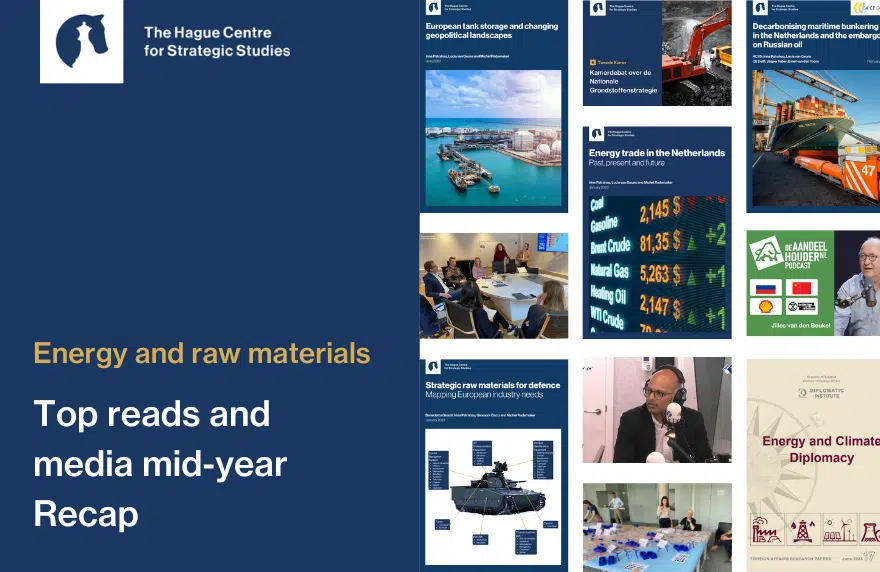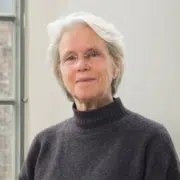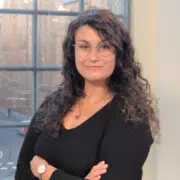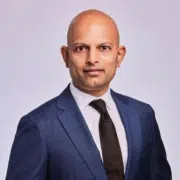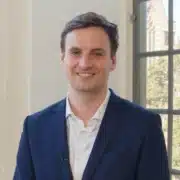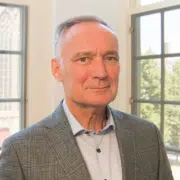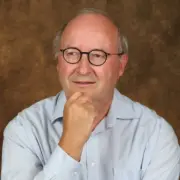With more than half of 2023 behind us, the HCSS Energy and raw materials team have been working hard to bring you the latest developments in the key geo-economics fields of natural resources and the energy transition. In case you want to catch up on all you might have missed, this recap highlights all of our top publications, events, podcasts and videos on Energy and raw materials. Curious about older publications on Energy and raw materials? The HCSS annual report 2022 highlights all of our content from on geo-economic topics.
Publications
Oil Markets after the Invasion of Ukraine: Moving towards strategic competition

As Russia is looking for new energy markets and the EU for alternative producers of fossil fuels, the world oil map is being redrawn. What does the global oil market look like a year after the invasion in Ukraine? What are the foreseen trends in the global oil market in the next 10-15 years? How are these shifts and market volatility affecting European industries and their competitiveness? HCSS strategic analysts Irina Patrahau and Lucia van Geuns explore in this paper written for the Bulgarian Diplomatic Institute’s Foreign Affairs Research Paper on “Energy and Climate Diplomacy”.This paper is an update of the paper previously released in August 2022, “From the War in Ukraine to the Energy Transition: Searching for a New Balance in the Oil Market” published by HCSS.
European tank storage and changing geopolitical landscapes
Maintaining a competitive EU requires industries to decarbonize and innovate, reduce dependencies on the import of energy, critical minerals and strategic industrial components, and establish new supply chains. Global energy markets are in search of an equilibrium that can be best understood through a geopolitical lens. In this paper, HCSS analysts Irina Patrahau, Lucia van Geuns and Michel Rademaker assess these geopolitical developments, focusing on the impact of the war in Ukraine on European energy security and decarbonization, with a specific focus on the tank storage sector. This publication builds on the Energy storage in transition series, developed since 2020 by The Hague Centre for Strategic Studies.

Decarbonising maritime bunkering in the Netherlands and the embargo on Russian oil

The European Union’s (EU) sanctions on the import of Russian oil have far-reaching consequences for the global oil market and for European security of supply. At the same time, Fit-for-55 (FF55) plans for decarbonizing maritime shipping are under development and the various legislative proposals are expected to start being implemented around 2025. Sanctions could have an impact on the international position and decarbonization trajectory of the ARA (Amsterdam-Rotterdam-Antwerp) region, an important energy trade hub and the second largest bunkering port in the world. This report develops qualitative storylines that focus on the impacts of the sanctions on Russian oil on bunkering in ARA and the implementation of FF55 plans up to 2030.
Energy trade in the Netherlands | Past, present and future
What does it take to be an energy trade hub? Energy trade has shaped geopolitics over the last two centuries, creating economic and geopolitical dependencies according to energy consumption and production patterns. The ARA region – Amsterdam, Rotterdam and Antwerp – is one of the largest liquid bulk trade hubs in the world. Using publicly available data, this HCSS report sheds light on the role of the Netherlands as an international energy trade hub. It looks back at the country’s development as a hub for oil and natural gas, and forward at the main characteristics of emerging commodity markets.

Strategic raw materials for defence | Mapping European industry needs

Raw materials are essential for Europe’s energy and digital transitions, but their importance to the military domain is less often discussed. The importance of raw materials differs across military domains. Materials deemed very critical for aircrafts, helicopters, and missiles might not be as critical to build corvettes, aircraft carriers and submarines. Moreover, the categorisation of supply risk differs from the one used in the European Union’s energy and digital transitions. Securing the supply of strategic raw materials for defence requires cooperation between the civil and military domain, cooperation at the European level to overcome supply-related obstacles, and transatlantic dialogue to ensure the supply of military technology. This report outlines the most commonly used raw materials in European defence applications and provides a risk assessment of supply security and geopolitical risks.
Articles
Blog | Chile’s National Lithium Strategy
As the world’s 2nd largest producer of lithium, the exponential growth in demand for the metal has put Chile in a powerful position. On April 20th, Chile’s President Gabriel Boric announced his National Lithium Strategy (NLS), which many media proclaimed to be a nationalization of the lithium industry. But is the NLS really a nationalization? According to HCSS strategic advisor Jeff Amrish Ritoe, it is too early to refer to it as such: one needs to take a closer look at what was announced at the presentation before coming to any conclusions, he writes in this op-ed.

IRENA | Geopolitics of the Energy Transition: Critical Materials

HCSS strategic analyst Irina Patrahau has contributed to the review process of the latest IRENA report, Geopolitics of the energy transition: Critical materials, which provides comprehensive insights into the significance of critical materials, examining their associated geopolitical implications and offering recommendations for a sustainable and efficient global energy transition.
Events
Online Seminar | Economic and maritime security in the Indo-Pacific
Economic and maritime security in Europe and East Asia hangs in the balance. The demand for critical raw materials (CRM) for the energy transition grows by the day. The smooth running of the world economy as well as the energy transition depends on the openness of increasingly contested Indo-Pacific waterways. How can European states/the EU and Japan align policies to mitigate critical raw material dependence on specific countries? In this online seminar Mr. Kotaro Shimizu, Chief Analyst, Mitsubishi UFJ Research and Consulting, Ms. Abigail Wulf, Vice President and Director, Center for Critical Minerals Strategy US SAFE, and Mr. Jeff Amrish Ritoe, Strategic Advisor and Energy Expert at HCSS. Watch the seminar on the HCSS YouTube here.

Staatssecretaris van Defensie Christophe van der Maat bezoekt HCSS

Staatssecretaris van Defensie Christophe van der Maat bracht op dinsdag 28 maart een werkbezoek aan het Den Haag Centrum voor Strategische Studies (HCSS). Strategisch analist Joris Teer gaf een briefing over halfgeleiders en kritieke technologieën. Het behalen van de doelstellingen voor de grote transities waar Nederland voor staat, onder meer op het gebied van digitalisering en energie, is mede afhankelijk van de levering van zeldzame grondstoffen. Strategisch analist Irina Patrahau informeerde de Staatssecretaris daarna over de kritieke materialen die nodig zijn voor defensietoepassingen, waarbij zij benadrukte dat het gaat om grondstoffen die vaak óók essentieel zijn voor de energie- en digitale transitie van Europa. In een recent HCSS-rapport worden meer dan veertig kritieke en grondstoffen als strategisch beschouwd voor de Europese defensie-industrie.
Defence and Energy Conference | Irina Patrahau: the geopolitics of critical raw materials
HCSS strategic analyst Irina Patrahau attended the second high-level joint defence and energy conference in Stockholm on 8 and 9 June 2023. The meeting, organised by the European Defence Agency (EDA) and the European Commission’s Directorate General for Energy (DG ENER), brought together more than 80 participants from European defence and energy sectors to discuss opportunities to collaborate and support the decarbonisation of the defence and security sector.

Kamerdebat over de Nationale Grondstoffenstrategie

Op 29 juni, vond in de Tweede Kamer het debat over de Nationale Grondstoffenstrategie plaats, met ministers Adriaansens (Economische Zaken en Klimaat) en Schreinemacher (Buitenlandse Handel en Ontwikkelingssamenwerking) en staatssecretaris Heijnen (Infrastructuur en Waterstaat). In de nationale grondstoffenstrategie, die als doel heeft de leveringszekerheid van kritieke grondstoffen op middellange termijn te vergroten, wordt o.a. verwezen naar 3 rapporten van het Den Haag Centrum voor Strategische Studies; Scenariostudie Kernenergie, Securing Critical Materials for Critical Sectors: Policy options for the Netherlands and the European Union, Cobalt Mining in the EU: Securing supplies and ensuring energy justice.
Video Content
Resilient and Robust: Climate-Proofing the Military for Increased Military Effectiveness
Since the Ukraine war, there has been a growing recognition of the importance of climate proofing the armed forces as a precondition for operational effectiveness, rather than as a positive side effect. Energy security is now a priority of NATO and the EU. A new HCSS report shows how new technologies can help armed forces reduce their carbon and logistical footprint, while maintaining – or even strengthening – their operational effectiveness. Better incentives for green innovation can help to reduce costs and improve operational capability at the same time. Watch the video on the HCSS YouTube here.

VRT | Jeff Amrish Ritoe: Lithiumproductie Chili genationaliseerd

Chili wil zijn lithiumproductie in eigen handen nemen en zelfs voor een deel nationaliseren. Lithium is cruciaal voor batterijen en daar valt dus veel geld mee te verdienen. Gaan er nog landen volgen? En wat betekent dat dan voor de wereldeconomie? Jeff Amrish Ritoe reageert in ‘De Ochtend’. Hij is strategisch adviseur energie en grondstoffen bij het Haags Centrum voor Strategische Studies (HCSS).
Accelerating cross-border cooperation on hydrogen infrastructure: North Rhine Westphalia – The Netherlands
The existing energy supply relationship between industrial consumers in North-Rhine Westphalia (NRW), Dutch seaports and other supply chain partners is an important basis for the acceleration of green hydrogen supply chains between the Netherlands and NRW. Following the success of the Netherlands Hydrogen Accelerator Workshop in October 2022 in June 2023 HCSS facilitated a similar workshop on hydrogen infrastructure cooperation between the Netherlands and North Rhine Westphalia. This fact-sheet and video highlight the results of the workshop in the form of key measures that can be taken to accelerate the development of cross-border green hydrogen supply chains.

Podcasts
De Strateeg: Zo moet Europa minder afhankelijk worden van grondstoffen uit China
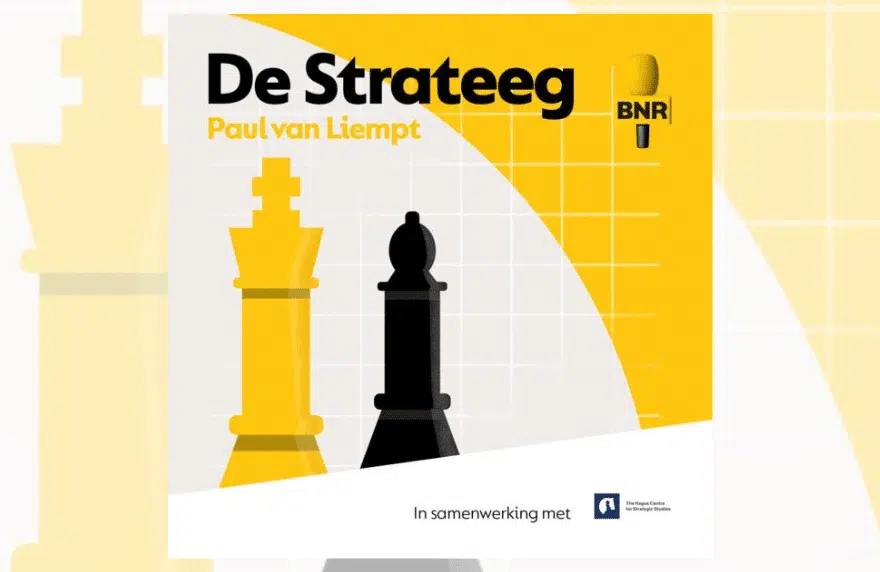
Europa wil op het gebied van kritieke grondstoffen minder afhankelijk worden van landen als China. Daarom presenteerde de Europese Commissie eerder al de Critical Raw Materials Act, die moet zorgen voor meer strategische autonomie op dit vlak. ‘We hebben echt nog een enorme stap te maken.’ Met Jeff Amrish Ritoe en Michel Rademaker. Luister.
Amrish Ritoe | Bureau Buitenland: Wordt Chili de lithiumkoning van de wereld?
Volgens Tesla-topman Elon Musk is het de nieuwe olie: lithium. Het is dé grondstof van de energietransitie. En daar willen landen met grote lithiumvoorraden flink van profiteren. Zeker Chili, dat de grootste voorraad ter wereld heeft.Wat betekent dat voor het land? En waarom blijft Europa toch zo achter bij het winnen van dit metaal? Dat vertelt Amrish Ritoe, HCSS strategisch adviseur Energie & Grondstoffen, bij VPRO’s Bureau Buitenland, in gesprek met presentator Tim de Wit en Chili-correspondent Boris van der Spek: “We zijn vergeten hoe we grote industriële projecten moet runnen.”

Podcast De Aandeelhouder met Jilles van den Beukel

In deze extra podcast van De Aandeelhouder bespreken we met energie-expert Jilles van den Beukel de volgende onderwerpen;
De situatie in Rusland, hoe zeer hebben ze de olie- en gasinkomsten nodig? De energietransitie: wordt het zon en wind? Kernenergie en waterstof energiecontract vastzetten of niet? Waar investeren in energietransitie?
Key Media Mentions and News items
Irina Patrahau | De Volkskrant: “Met groene transitie zit EU op goede spoor, alleen nogal laat”
“Als we 20 jaar geleden waren begonnen, hadden we nu een betere positie gehad. Nu zijn we wakker, maar China heeft een grote voorsprong,” zegt HCSS analist Irina Patrahau in de Volkskrant. “Met de groene transitie zit de EU wel op het goede spoor, alleen nogal laat. We gaan nog moeilijke jaren meemaken, waarin energie en grondstoffen duur blijven.”

Amrish Ritoe | EenVandaag: Grote vondst grondstof voor batterijen en zonnepanelen in Noorwegen kan cruciaal zijn voor energietransitie

Een bijzondere vondst in Noorwegen, waar een grote ondergrondse reserve van fosforiet is ontdekt. Het materiaal wordt gebruikt in batterijen en zonnepanelen en de vondst kan Europa dus minder afhankelijk maken van andere landen in de energietransitie. Dat zegt strategisch adviseur energie en grondstoffen Amrish Ritoe van kennisinstituut HCSS. Hij noemt onder andere China. “Op dit moment is de aanvoer van ruwe materialen voor elektrische wagens kwetsbaar. Het merendeel komt daar vandaan en je wil liever niet je lot in de handen van één land leggen,” vertelde Ritoe in EenVandaag.
De Avondshow met Arjen Lubach: Mijnbouw in Europa
We komen er niet onderuit: er is meer mijnbouw nodig in Europa, want voor de energietransitie hebben we steeds meer zeldzame grondstoffen nodig. Hoe ‘zeldzaam’ die zijn, legde HCSS expert Michel Rademaker uit bij VPRO’s “De Avondshow met Arjen Lubach” (vanaf 3:35).

Michel Rademaker: vondst aardmetalen Zweden belangrijk, maar vergunning duurt nog lang

Zweden heeft een grote hoeveelheid zeldzame aardmetalen ontdekt. Een belangrijke stap in de vergroening van onze economie, maar er moet nog veel gebeuren, legt HCSS adjunct directeur en grondstoffen expert Michel Rademaker uit bij RTL Z. “Het is zeker een belangrijke vondst op het Europese continent, maar een belangrijke voorwaarde is dat het nog wel tot ontginning moet worden gebracht. Dan heb je om te beginnen een vergunning nodig, en dat is in Europa een groot probleem. De Zweden zelf geven aan dat het wel 15 jaar kan duren; ik hoop dat de EU een weg vindt om dat drastisch te versnellen, want we hebben dat spul zo snel mogelijk nodig.”
Joris Teer | NOS: China slaat terug: exportrestricties voor grondstoffen computerchips
Wie vanaf 1 augustus twee belangrijke grondstoffen voor onder meer computerchips wil exporteren uit China, moet hier toestemming aan Peking voor vragen. Dat heeft de Chinese overheid aangekondigd. Het bericht komt slechts enkele dagen nadat de Nederlandse overheid restricties bekendmaakte voor de export van ASML’s chipmachines naar China.


